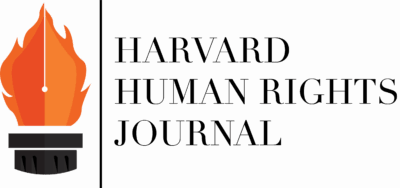Since its foundation in 1988, the Harvard Human Rights Journal (“HHRJ” or “the Journal”) has provided a forum for a diverse array of human rights scholarship authored by legal scholars, practitioners, and law students. HHRJ intends to serve as the premier law student-edited legal publication focused on human rights law and policy, publishing content in print and online. The Journal aspires to publish content that sets the cutting edge of international human rights law, in both international and domestic contexts, exploring novel arguments and issues that advance the universal promise of human rights.
Recognized from the Cyrus Cylinder to the Universal Declaration of Human Rights, human rights are those rights inherent to every human. Human rights are universal and inalienable, as well as indivisible and interdependent. Human rights are rooted in equality and in freedom from discrimination on the basis of ascribed characteristics. All stakeholders, from states to corporations, must respect, protect, and fulfill the promise of human rights. Since the formation of the field in the 20th century, human rights law continues to grow and recognize a variety of fundamental rights. The Journal is dedicated to the advancement of civil and political rights; economic, social, and cultural rights; as well as people’s rights.
Membership in this Journal is open to all Harvard Law School students.
